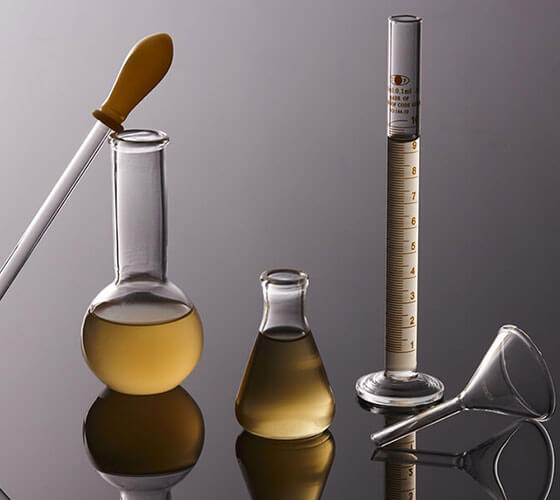The Power of Probiotics in Skincare

In recent years, probiotics have gained significant traction in the wellness industry, known for their role in supporting gut health. Their benefits extend beyond digestion, finding their way into skincare. As consumers become more aware of the importance of the skin’s microbiome, probiotics are now being hailed as a game-changer in achieving healthy, radiant skin.
However, using live probiotics in cosmetics presents challenges due to the difficulty of keeping these microorganisms alive in skincare formulations. This is where alternatives like prebiotics, postbiotics, and probiotic lysates (fragments of non-living probiotics) come into play. These ingredients are widely embraced by the skincare industry and offer similar benefits, helping to balance the skin's microbiome and improve overall skin health.
What Are Probiotic-Derived Ingredients and How Do They Work in Skincare?
While live probiotics are not typically viable in skincare products, their benefits can still be harnessed through postbiotics and lysates—non-living parts or byproducts of probiotics. These ingredients can help balance the skin's microbiome without the stability issues associated with live organisms. Prebiotics, on the other hand, are substances that feed and support the growth of beneficial bacteria already present on the skin.
Here’s how each works:
Prebiotics: Act as a food source for good bacteria on the skin, promoting a healthy and balanced microbiome. This balance is crucial for healthy skin, as it can prevent the overgrowth of harmful bacteria that cause issues like acne and inflammation.
Postbiotics: The byproducts of probiotic fermentation, include beneficial compounds like short-chain fatty acids and antimicrobial peptides. These compounds can enhance skin health by providing antioxidant protection, reducing inflammation, and promoting a stronger skin barrier.
Probiotic Lysates: Inactive fragments of probiotics that, while not alive, can still interact with the skin to provide calming and nourishing effects.
These ingredients are stable, easy to formulate, and offer many of the same benefits as live probiotics without the need for special packaging or refrigeration.
Highlighting Fucoidan as a Marine-Based Prebiotic
Fucoidan is a multifunctional carbohydrate polymer derived from seaweed, known for its unique chemical composition and biological activity. Research indicates that Fucoidan can act as a marine-based prebiotic, regulating the growth of beneficial bacteria and exhibiting antibacterial properties. This makes Fucoidan a promising new prebiotic ingredient for skincare, with potential benefits in preventing bacterial infections and promoting probiotic regulation.
Benefits of Using These Ingredients
- Balances Skin Microbiome: These ingredients help maintain a healthy balance of microorganisms on the skin, reducing the growth of harmful bacteria.
- Reduces Inflammation: They regulate the skin’s immune response, decreasing inflammation and redness.
- Strengthens Skin Barrier: They enhance the skin’s barrier function, improving its ability to retain moisture.
- Antioxidant Properties: Some of these ingredients have antioxidant properties, protecting the skin from UV damage.
Probiotics, Prebiotics, and Postbiotics Market size was valued at USD 57,074.2 million in 2023 and is poised to grow at a CAGR of 7.0% from 2024 to 2030. Consumers are becoming more aware of the importance of maintaining a healthy skin microbiome, which plays a crucial role in overall skin health. This awareness is fueled by growing scientific research and media overage highlighting the benefits of these ingredients. Additionally, there is a rising preference for natural and functional skincare products that offer targeted benefits such as reducing inflammation, enhancing skin barrier function, and providing antioxidant effects. The stability and longer shelf life of postbiotics compared to live probiotics also make them an attractive option for both manufacturers and consumers. As a result, the market for these microbiome-friendly ingredients is expanding rapidly, reflecting a broader trend towards holistic and science-backed skincare solutions.
International Guidelines
Currently, there are no specific international guidelines for microbiome claims in cosmetic products. Regulatory bodies like the U.S. Food and Drug Administration (FDA) have expressed concerns about the efficacy, safety, and quality of these products. This lack of standardized guidelines means that definitions and terminologies can vary widely between different regions and products.
Leading Brands
Several well-known skincare brands have embraced probiotic-derived ingredients such as prebiotics, postbiotics, and lysates. These brands are capitalizing on the microbiome-friendly trend, offering products that balance and nourish the skin without the challenges of live probiotics. Here are a few examples:
- Lancôme
Product: Lancôme Advanced Génifique Youth Activating Serum
This serum contains bifidus prebiotic and probiotic lysates that work to strengthen the skin’s barrier, improve hydration, and enhance radiance. Lancôme has highlighted its use of these ingredients to support a healthy skin microbiome, making this product a bestseller in the anti-aging category. -
Estée Lauder
Product: Estée Lauder Micro Essence Skin Activating Treatment Lotion
Probiotic-Derived Ingredients: This essence contains bio-ferment from lactobacillus, a postbiotic ingredient that helps soothe the skin, reduce irritation, and improve hydration. Estée Lauder positions this product as essential for boosting the skin’s resilience and moisture levels.
-
Gallinée
Product: Gallinée Prebiotic Face Vinegar
Gallinée is a brand entirely focused on microbiome-friendly skincare. This toner contains prebiotics, postbiotics, and lactic acid to balance the skin's microbiome, brighten the complexion, and reduce inflammation. The brand's philosophy revolves around nurturing the skin’s beneficial bacteria.
- La Roche-Posay
Product: La Roche-Posay Lipikar Balm AP+
This body balm contains Aqua Posae Filiformis, a postbiotic ingredient derived from thermal spring water. It helps restore the skin's microbiome, reduce inflammation, and soothe sensitive, dry skin. The product is popular for treating eczema-prone skin.


